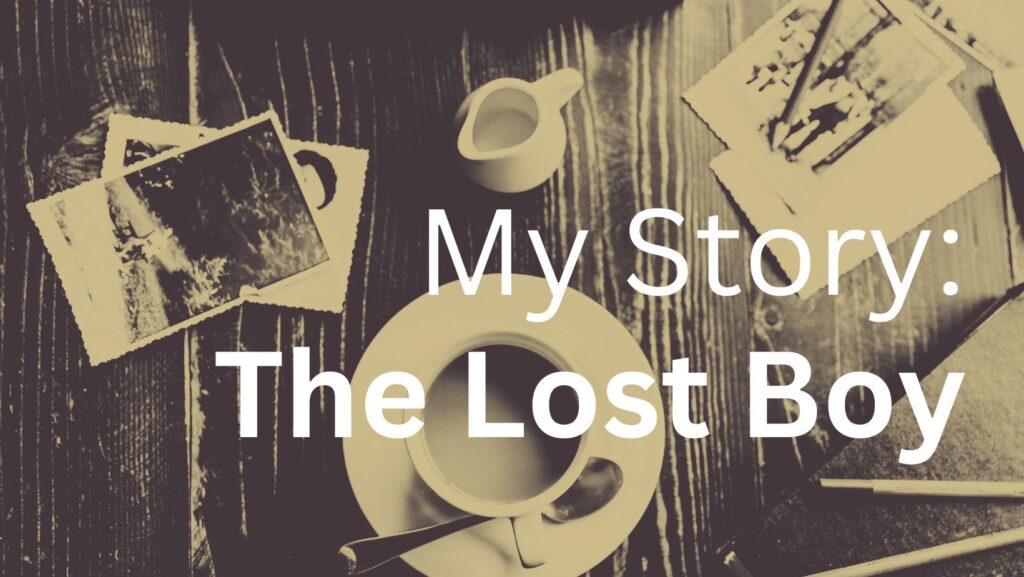My Story: The Lost Boy
My Story: The Lost Boy

Autism and special needs education is just beginning to gain traction in Pakistan. However, children born with autism are not new. It’s sad to think that as recently as a decade ago, children with special needs were completely ignored, and their existence shut off from the rest of the world.
We asked people we know to share their stories with us. One of our contacts, who wishes to remain anonymous, wrote about growing up with an older brother with special needs. We usually come across accounts from parents. The siblings’ perspective is rarely featured. But we are glad someone chose to share their story. People’s names have been changed to protect privacy.
The Lost Boy
I was born in Wazirabad in 1973. My father worked in Pakistan Railways, so I grew up in several cities in Punjab. When I started school, my father summoned me to him and said something I didn’t understand: “When someone asks about your siblings, tell them you have one younger brother.” I was 5 years old at the time. And I didn’t understand my father’s strange command. I had an older brother too. He was nearly 3 years older than I was. So then, why did my father want to keep him a secret?
The eldest was Murtaza Bhai, I was the middle child, and then there is Omar, the family’s baby. But Murtaza Bhai was different. When I was learning to wear my clothes and brush my hair, Amma used to do that for Murtaza Bhai. He barely said a few words – amma was umm, abbu was ba. He called me iya (my name is Shazia). Omar was just “ooo.” We understood the other “words” he said. Even our relatives didn’t know what he was saying. Amma used to feed him with her own hands. And then, later, when I was a little older, I would help him eat if amma was busy.
Our parents hardly let Murtaza Bhai play outside with other kids. But I remember one incident as if it happened yesterday. I was 4 years old, maybe. We were playing right outside our house. Other kids from our neighbourhood saw us and walked up to us. The boys tried to draw Murtaza Bhai’s attention. But there was no response from him. Murtaza Bhai became an object of curiosity suddenly. The boys, seeing someone different, someone who was weaker than them, started chanting and then turned hostile. They pelted stones at my brother. Scared and hurt, both of us ran for dear life. Murtaza bhai was traumatized. I narrated the tale to amma, who became sad. But she told us to be brave, and things like this always happened.
Later that evening, when abbu came home, I saw my mother crying and telling him our story. Abbu looked concerned and told her he would talk to the neighbours about it. I don’t know what happened. But after this incident, Murtaza bhai was never allowed to play outside again. When I started attending school, Murtaza Bhai often insisted on going with me. He never went to school. When I did my homework, Murtaza Bhai would flip through my books. My boring school books fascinated him. But he couldn’t read either. Before school began, I couldn’t distinguish between normal and different. But as I interacted with classmates and started making friends, I noticed the differences. That was the first time I felt that Murtaza Bhai was not like Omar or me.
Naively, I used to think that all my friends would have older brothers like Murtaza Bhai. The day I learned that that wasn’t the case, I ran to amma and told her the news. She just smiled knowingly. The words that she spoke next have never left me. “Everyone isn’t as fortunate as us. Allah sent an angel to live with our family. He [Allah] thought that we would need his support. But it’s our responsibility to take care of Murtaza because he is not from our world and can’t do it himself. That’s why he must remain a secret”. I assigned myself as Murtaza Bhai’s sworn guardian from that day forward. The secrecy around Murtaza bhai’s existence became second nature.
As I grew older, I began questioning the story of Murtaza Bhai being an angel. I was older, and I knew better. However, I still played the role of Murtaza Bhai’s protector and guardian whenever required. I once heard my chachi call Murtaza Bhai “challa.” Without thinking, I stormed in and picked a fight with her, becoming an unliked person in my extended family. But, I remained resolute.
When I was around 9 years old, the scariest incident happened. I don’t think I will forget this till the day I die. We moved to Faisalabad, my father’s new appointment station. We had just moved to our new house. Multiple workers were moving our belongings. Finding the door unlocked, Murtaza Bhai ventured into a strange city where we knew no one. Amma couldn’t stop crying, and abbu became very agitated. I cried too. We kept thinking of horrific scenarios. What if a train hit him? Had kidnappers taken him to make him beg?
But we were lucky that Murtaza Bhai was found by the police and came home late that night. He was barefoot, with blistered feet, and there was dirt on his clothes and face, especially where his tears had dried off. He was hungry, but he mainly unhurt. I shiver to this day when I think about his ordeal. Think about a child who can’t speak and is lost in a strange city. I don’t want to imagine anything else that could have happened to a defenceless little boy.
Murtaza Bhai died two months before his fourteenth birthday. He had Hepatitis A, and it worsened. Many relatives told my parents to thank God for ending their suffering. Although it has been almost forty years since then, I still feel angry about their insensitive and heartless comments. But after his passing, the secrecy that shrouded his existence remained. Maybe we got used to it. But, honestly speaking, I don’t know why my parents wanted to keep Murtaza Bhai hidden. Perhaps they felt scared of what people would say. Perhaps they were ashamed. My parents might have been sick and tired of people’s questions, comments and remedies, so they hid Murtaza Bhai away.
Years later, we brought the secret of Murtaza Bhai out in the open. While looking through old things, Omar found our old photo album. There were photos of our whole family. Omar chose a picture of the three of us and had it framed. I was apprehensive when my younger son asked who the third child was. But it was time for Murtaza Bhai not to remain a secret anymore. So I explained who he was, and the children had several questions. Finally, their curiosity satisfied, they returned to playing.
The first time I said his name after years and years, it felt like time had melted away. I missed him in a way I can’t explain. My role as his protector ended long ago, but being in that position taught me life lessons. For example, I was a responsible person before I became an adult. I learned to stand up for myself and others at a young age. As my children, nephews, and niece grow older (all of them are in their teenage), I can see minor resemblances with Murtaza Bhai. My older son raises his eyebrows in the same way he did. Omar’s daughter has Murtaza Bhai’s lopsided smile that we see in the decades-old photo displayed in Omar’s living room.
I also feel a deep sadness for Murtaza bhai. He was the lost boy. My brother never experienced many things that Omar and I did. He never went to school, and he never made friends, got married or had children. Murtaza Bhai didn’t feel the thrill of victory when graduating from college. I never had a name for whatever Murtaza Bhai had. Now, when I read about stories of people, I feel happy that we have come so far that we know when children have special needs and how to help them.
Read more of our blogs here.




[…] The Lost Boy […]